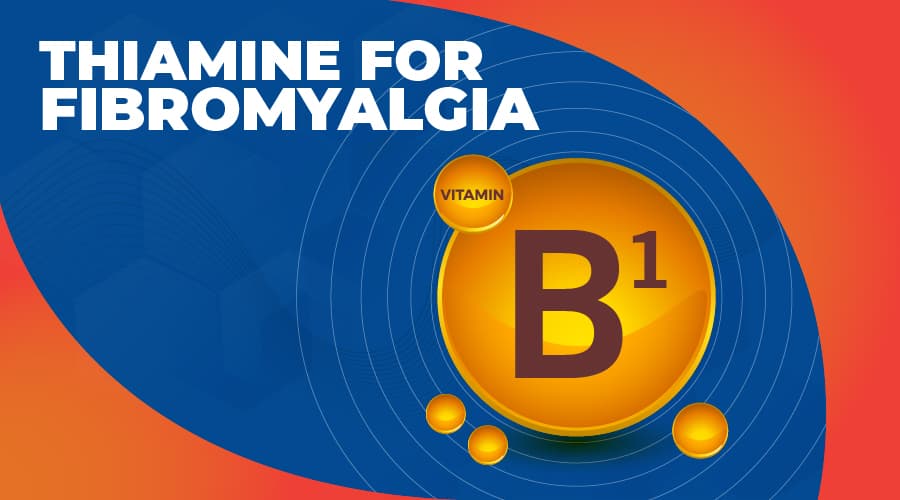Fibromyalgia is a chronic condition characterized by widespread pain, fatigue, and tenderness in localized areas. Managing fibromyalgia necessitates a multifaceted approach, including addressing nutritional deficiencies. An integral component in this context is Vitamin B1, also known as thiamine, which plays a pivotal role in energy metabolism and the proper functioning of the nervous system.
Understanding Fibromyalgia:
Fibromyalgia impacts millions worldwide, with sufferers often experiencing debilitating pain, cognitive disturbances, and sleep irregularities. The root cause remains elusive, but a multifarious interaction of genetic, environmental, and psychological factors is believed to contribute to its onset and progression. Thus, managing fibromyalgia involves alleviating symptoms and improving overall quality of life, focusing on adequate nutrition, exercise, stress management, and proper sleep.
Vitamin B1 and Energy Metabolism:
Vitamin B1 is essential for converting food into energy. It acts as a coenzyme in the metabolism of carbohydrates and amino acids, facilitating energy release, which is crucial for every cell in the body. A deficiency in thiamine can lead to a decline in energy levels and can exacerbate symptoms of fatigue and weakness in individuals with fibromyalgia.
Cognitive Function and Nervous System Health:
Beyond energy metabolism, Vitamin B1 is vital for cognitive function and the overall health of the nervous system. It assists in the production of the neurotransmitter acetylcholine, which is instrumental in memory and mood regulation. A lack of adequate thiamine levels can impair cognitive function, lead to mood disturbances, and exacerbate the ‘fibro fog’—the term used to describe the cognitive difficulties associated with fibromyalgia.
Addressing Deficiencies:
Research has linked Vitamin B1 deficiencies to fibromyalgia, and addressing this deficiency can ameliorate some of the symptoms associated with this condition. Supplementation can prove beneficial, and a healthcare provider can recommend appropriate dosages based on individual health conditions and nutritional needs. B1 supplementation has shown to improve symptoms such as fatigue, pain, and cognitive disturbances in some fibromyalgia patients, offering a glimpse of hope in managing this chronic condition.
Dietary Sources of Vitamin B1:
In addition to supplementation, incorporating thiamine-rich foods in the diet is essential. These include whole grains, legumes, seeds, nuts, and fortified foods. A balanced diet rich in these foods can help maintain adequate Vitamin B1 levels and potentially mitigate the severity of fibromyalgia symptoms.
Integrated Approach to Fibromyalgia Management:
Vitamin B1, although crucial, is just one piece of the puzzle in fibromyalgia management. An integrated approach involving a balanced diet, regular physical activity, stress reduction, cognitive-behavioral therapy, and proper sleep hygiene is pivotal. Fibromyalgia sufferers can benefit significantly from a personalised treatment plan that addresses their unique symptoms and lifestyle needs, empowering them to lead fuller, more active lives despite the condition.
Impact on Quality of Life:
Managing fibromyalgia effectively can drastically improve the quality of life for individuals living with this condition. A comprehensive management strategy that includes maintaining optimal Vitamin B1 levels can mitigate symptoms and enhance overall well-being, enabling sufferers to pursue their goals and enjoy life to the fullest.
Consultation and Personalized Care:
Given the complexity of fibromyalgia and the diverse range of symptoms experienced by those affected, consultation with healthcare providers and personalized care are paramount. Healthcare professionals can assess individual nutritional needs, recommend appropriate supplements or dietary changes, and develop tailored management plans that address the unique challenges posed by fibromyalgia.
Conclusion
Vitamin B1 plays a vital role in managing fibromyalgia, impacting energy metabolism, cognitive function, and nervous system health. Addressing thiamine deficiencies through supplementation and dietary changes can alleviate symptoms and improve the quality of life for those living with fibromyalgia. However, a holistic and integrated approach, combining adequate nutrition, lifestyle modifications, and personalized care, is essential for effective fibromyalgia management. By exploring and understanding the multifaceted roles of essential nutrients like Vitamin B1 in fibromyalgia, we can pave the way for more informed, comprehensive, and empathetic care for those living with this chronic condition.




